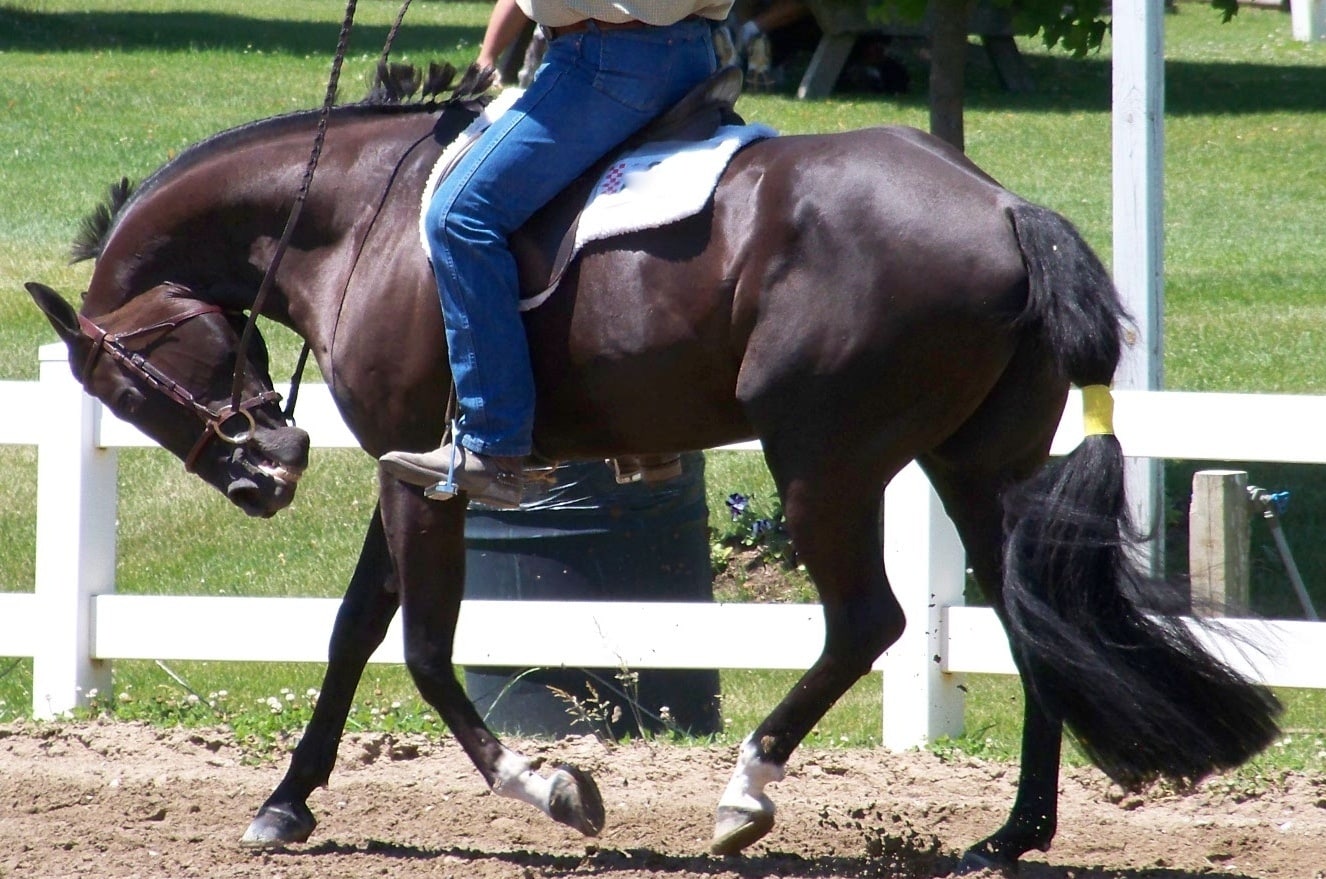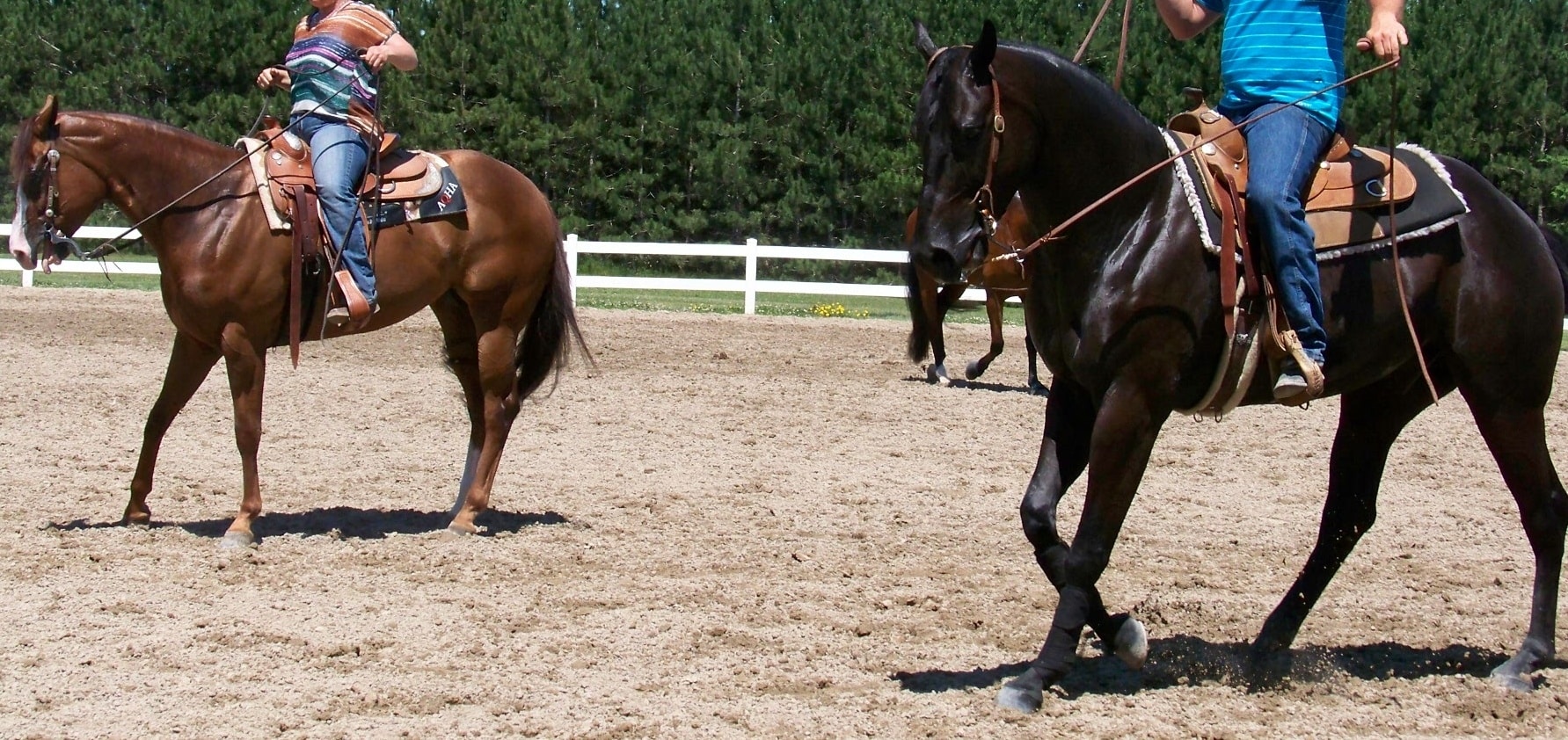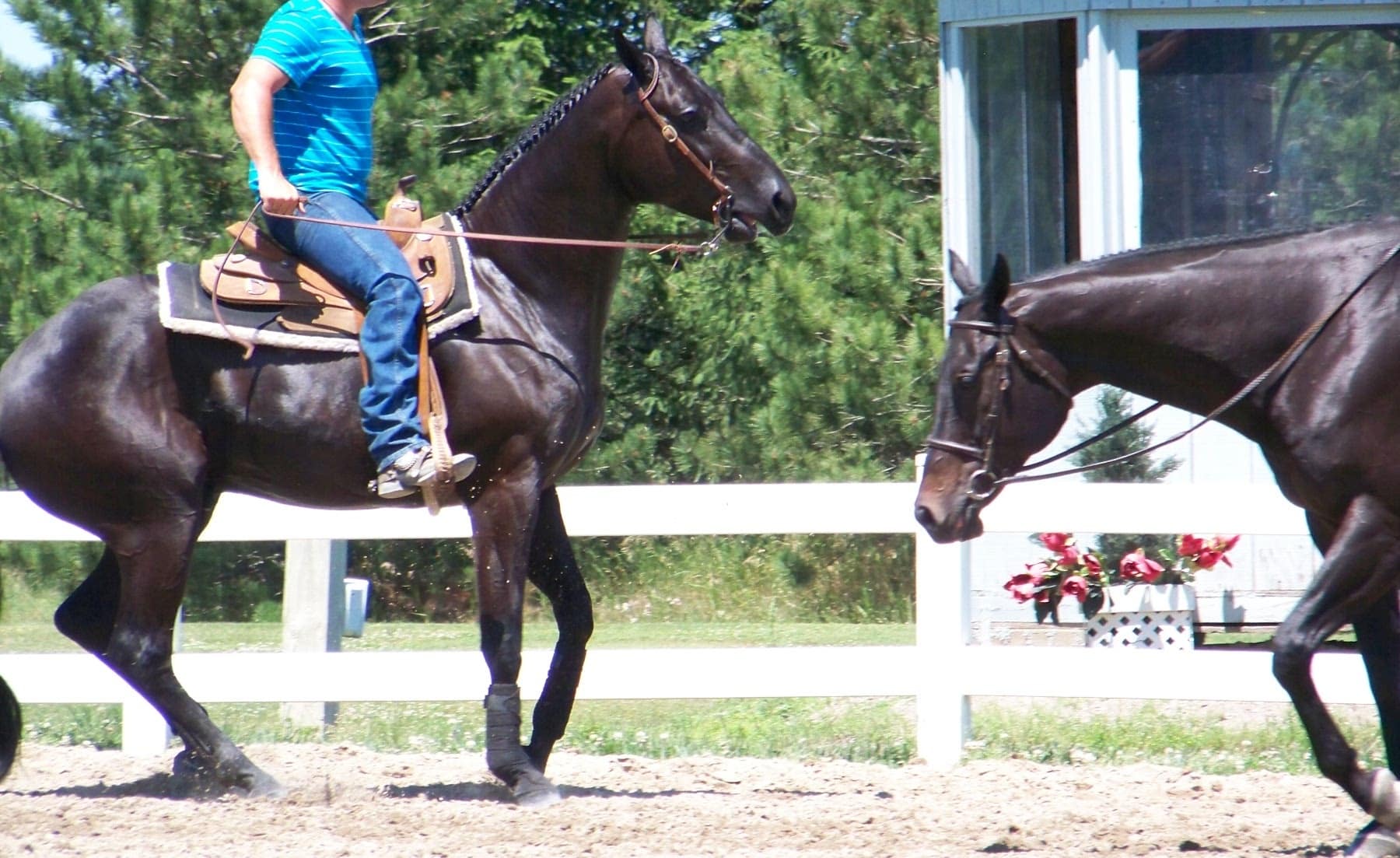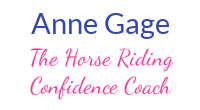The last time I was at a sanctioned/recognized horse show, I was honestly appalled by some of the training techniques being used by many of the trainers and riders. Draw reins were used to pull the horses’ heads in to their chests. Reins attached to shank bits with large ports were pulled and yanked upwards either to get the horse to raise his head if it was too low or to lower his head if it was too high.
I didn’t understand how all this pulling was “training” let alone how the horse was supposed to know the difference between the cue for raise or lower his head! These techniques are accepted as “the way” to train horses for competition.
Had I asked a rider why he or she was being so hard on the horse, I am sure the answer would have been “he deserves it”.


There were some quiet riders working their horses in snaffle bits with quiet, consistent contact and riding from their seat and legs rather than from their hands.
But, quite honestly, these were the minority of what I witnessed.

Which horse would you rather be? The stressed out horse on the left or the relaxed horse on the right?
Modern vs Traditional Horse Training
We all learn what we are taught. There are methods I used when I was competing on the Hunter circuit that I am not proud of. We were taught to use spurs, whips and punishment.
If your horse was too fast or didn't have brakes, you went to a stronger bit.
These were techniques that the majority of trainers used and taught to their students back then. And are still being used today.
The horse riding coaches and horse trainers learned these forceful techniques from their coaches and trainers. And they were (and are) passing along what they knew.
It was only when I met a horse that did not work well with these traditional methods that I looked for some more answers. That is when I went to my first Chris Irwin clinic and my eyes were opened to a better way of working with horses.
And I've continued to look for ways of training horses that don't require me to be forceful or “tough”. Techniques that make the experience good – even beneficial – for the horse. And much more rewarding for me, too.
I use TTouch (created by Linda Tellington) And positive reinforcement. I focus on helping horses relax - because a relaxed horse can perform and learn much better than a tense, scared horse can.
Horse Training Problems Are Never The Horse's Fault
It’s a long, hard road to change “traditions” especially when the techniques – at least on the surface – appear to work. If the training doesn’t work then, traditionally, the blame is put on the horse and the owner is encouraged to sell that horse and buy another one.
I want to see that thinking changed so that the horse gets the training he needs to become the horse the owner wants.
That's why I will continue to show people that there is a better way to work with horses. And I will continue to learn and listen to the horse.
Give Your Horse What He Needs
Methods that benefit the horse and make him a willing learner. Methods that use positive reinforcement and allow the horse to have a voice.
These modern horse training methods don’t cause mental or physical stress to the horse. In fact, they consider and improve the horses overall well being.
Ask Your Horse Trainer "Why"
If you aren’t happy with what your trainer is doing with your horse, ask questions.
Ask why he or she is doing what they are doing.
Stop looking for quick fixes. Training takes as long as it takes. And that will be better for you and your horse in the long run.
Horses are extremely sensitive and intuitive animals. They deserve better from us.
Give your horse what he needs and he will willingly give you what you want without compromise to his mental and physical well being.
When we know better, we do better. So, are you giving your horse what he needs?
GET INSTANT ACCESS
to my FREE Cheat Sheet - 6 Subtle Signs That Your Horse Is Feeling Tense
- Recognize subtle signals that your horse gives when he's feeling even a little bit stressed: You'll be able to prevent those unexpected spooks that seem to come out of nowhere.
- Improve your communication with your horse: You'll understand why your horse behaves the way he does. And you can take proactive steps to help him feel more calm ... And prevent those unwanted behaviours.
- Develop a deeper connection with your horse: When you recognize that your horse feels tense then you can take steps to help him relax and feel safe. That builds his trust in you.


